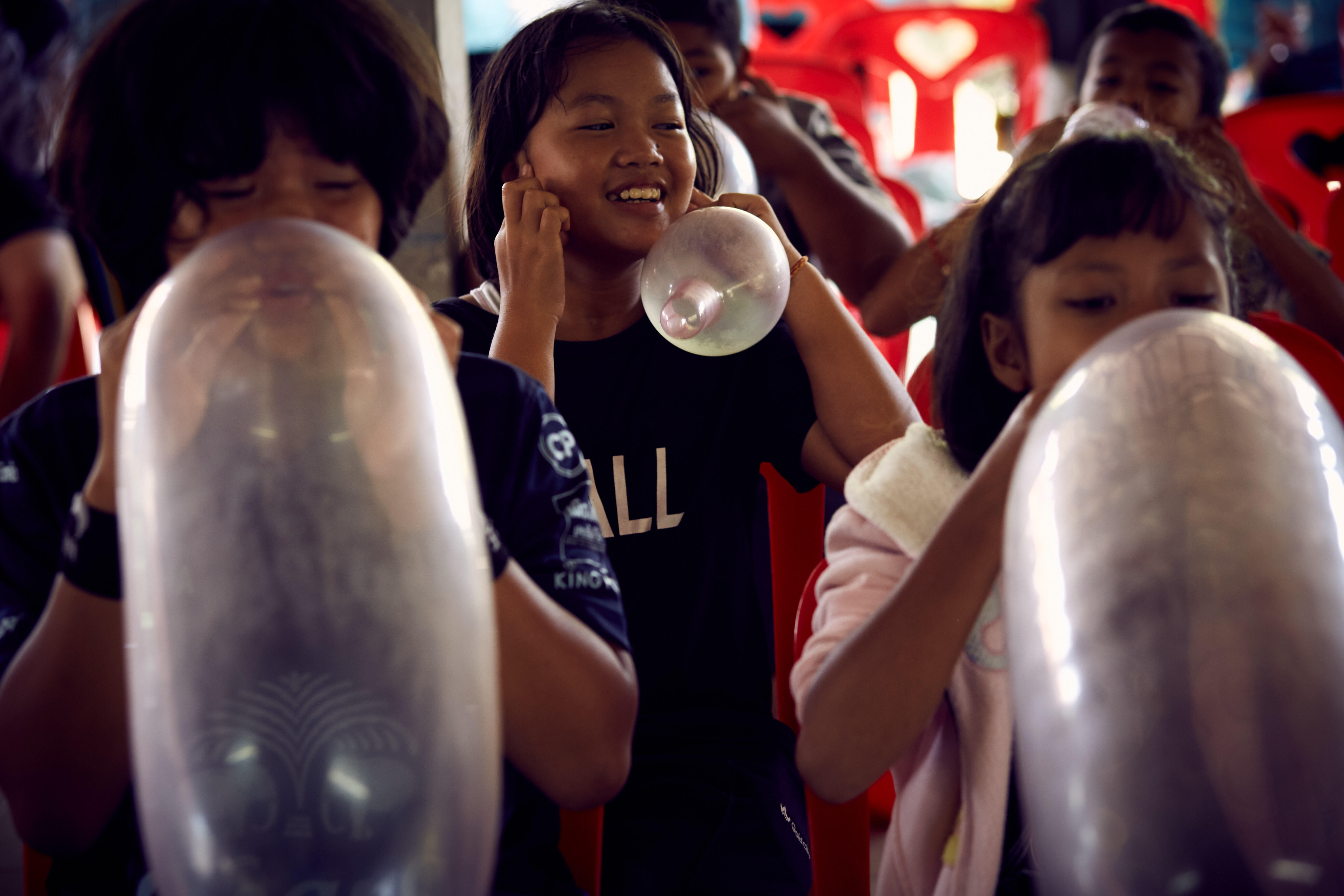Buriram Province, Thailand
“Who can blow up the biggest condom? Who can make it burst!?”
In the tiny village of Khetoon, in Thailand’s rural northeast, uproarious laughter rings out. Set amongst emerald green rice fields and patches of vegetables, it’s typical of so many in the region - reliant on agriculture, with low education levels and grinding inter-generational poverty.
Yet despite the hardship, here, in the local community hall, there is an infectious spirit and warmth. Pressing blown-up condoms to their lips, a gaggle of local children, aged from 7 to 17, squeal with laughter.
“Did you know condoms also make an excellent shoeshine? Would you like us to show you how?”
“We try to make it fun and humorous to keep kids’ attention and also sensitise them to this topic,” explains Peung, 17, one of the workshop leaders and a student from the nearby Mechai Pattana (or ‘Bamboo’) School. “We are not here to talk about inappropriate things, we are there to inform them and to meet a need. If they are educated, it might help them in the future. I see it as fulfilling a duty. My mission is to educate”.
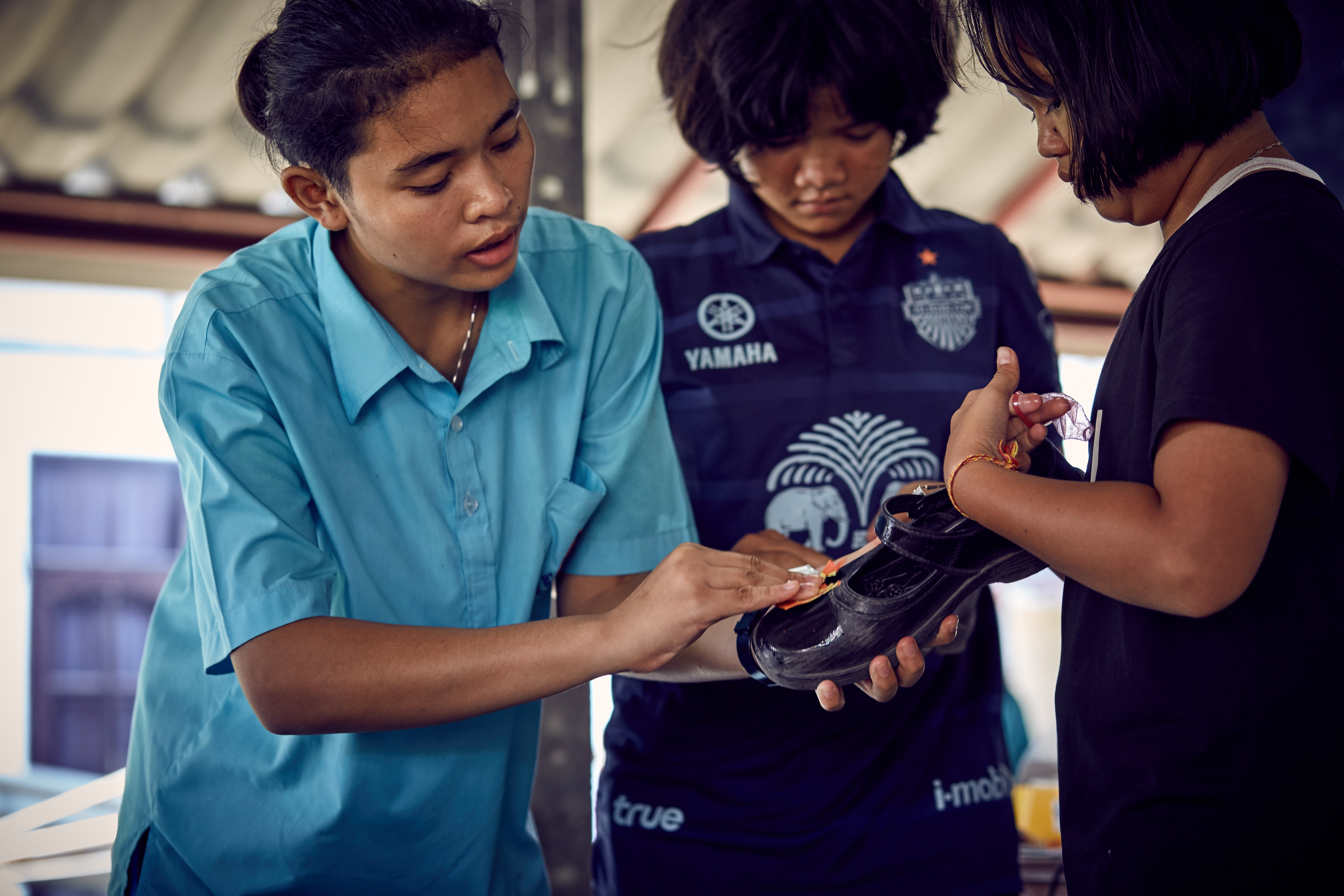
Image: Ruth Carr/UNFPA Thailand
Breaking new ground in the way comprehensive sexuality education is delivered to young people - from student to student, peer to peer - the workshops also function as a way for the Mechai students to build up their 400 community service hours per year, an important component of their education, and one of the ways they ‘pay’ their tuition and boarding fees.
As well, they must plant 400 trees each year.
Currently supporting over 150 secondary students from across the country, the Mechai Pattana School was established in 2008, in response to what founder and chairman, Mechai Viravaidya describes as a failure of the ‘rote learning’, memorisation model in conventional Thai schools and rampant inequality between the rich and the poor.
“I saw a lot of exploitation in society and also mediocrity in the regular school system. I thought, why not create our own school and do it in a better way. A school that would produce good, decent, honest citizens who are willing to share, who respect other people, who can look for answers, who are quite independent, and who support gender equality, all those things that I like to see in a person,” Mechai explains.
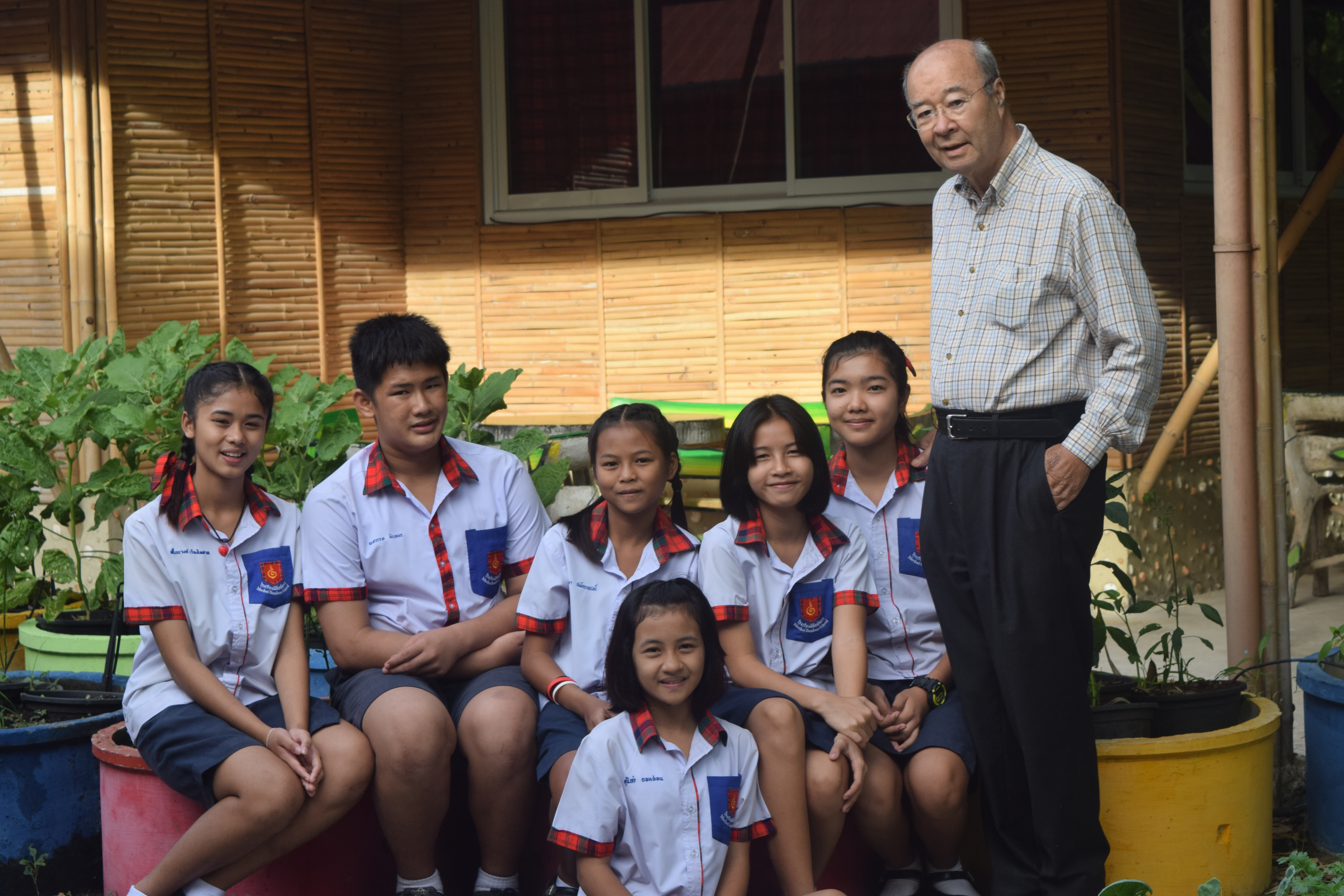
Mechai Viravaidya with students at the Mechai Pattana (Bamboo) School, Buriram Province, Thailand
Mechai is a legendary figure in Thailand, having played a key role in formulating and implementing its family planning programme which has helped reduce the country’s total fertility rate dramatically in just a few decades.
As well, he is known as the “Condom King” for having popularized condom use across Thailand at a time when the HIV epidemic was escalating dramatically, an initiative credited with literally saving millions of lives during that crucial period.
Along with learning the formal school curriculum, students at Mechai Pattana must also engage in important life and career orientated skills such as business management, recruitment and financial responsibility.
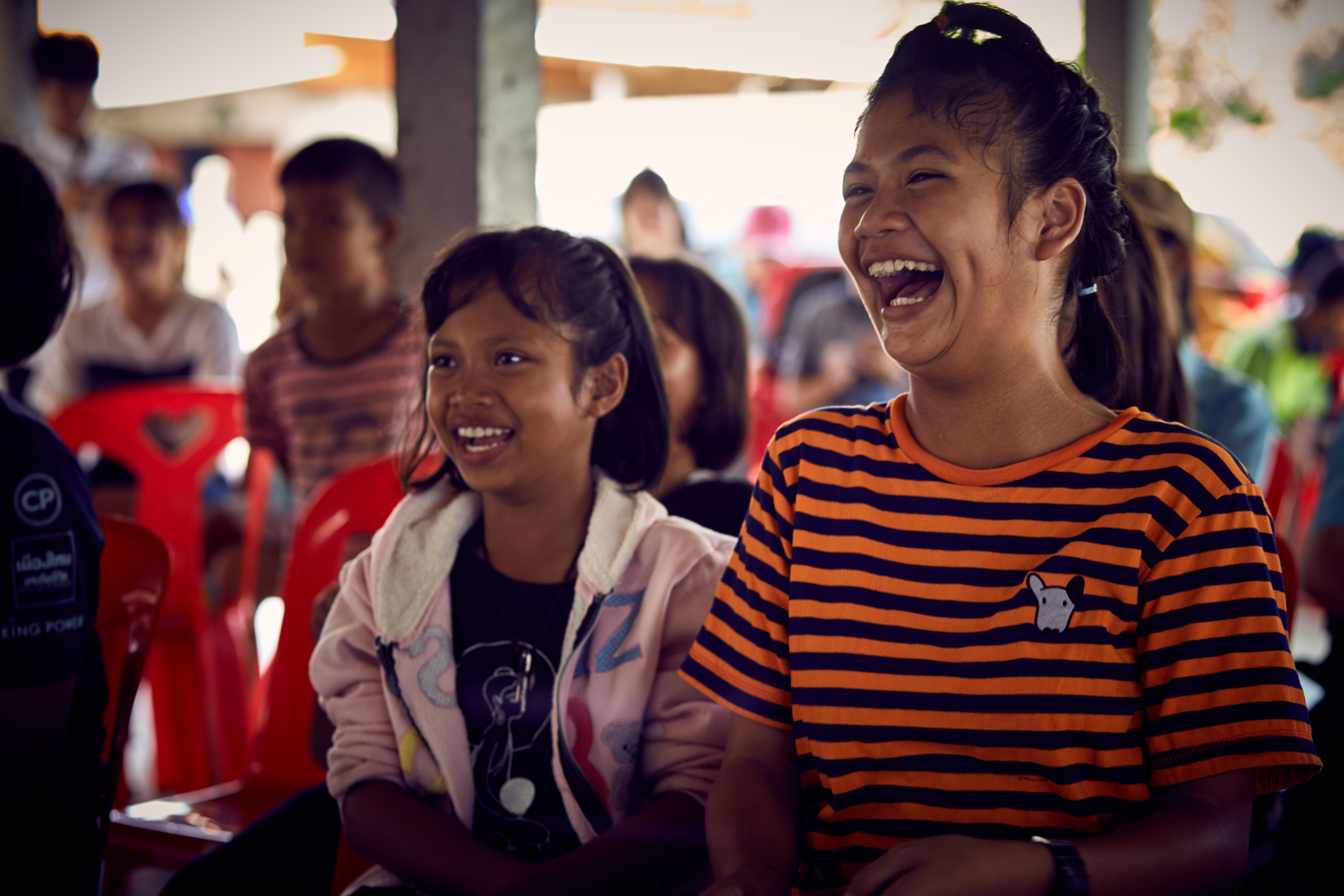
Image: Ruth Carr/UNFPA Thailand
When new students or even teachers apply to the school it is a student board that decides whether they will be offered a place or position. When new equipment - from computers to cars - need to be purchased, it is students who must gather the quotations to find the best deal and then manage budgets accordingly.
“My local school did not offer any activities like this, it was just the basics,” says Mod Noi, a graduate of the Mechai Pattana and now a 3rd year university student in Bangkok studying business management. “I’ve become much more confident, I have a clear goal in life and I am able to see existing problems in my local community and feel that I can help solve these problems”.
As a champion of equity and fairness across all sectors of society, the Mechai Pattana School also targets students whose lives are often, though not exclusively, disadvantaged.
“Even if Jack Meyer wants to send his daughter here, he has to pay the school fees the same way as everybody else, through community service. Your billions cannot get you in,” quips Mechai.
For sisters, Duan, 19 and Nuch, 18, their Mon ethnic background and ‘stateless’ identity had previously seen them overlooked in their local government school and often persecuted harshly by other students and community members. As well, their family was under significant financial hardship - their father having died relatively young and their mother facing health issues.
“Before our lives were devoid of hope. I was just hoping to finish Year 9 but I did not think I could do much after that.” says Duan. “But since coming here I feel I can do anything. We are entirely accepted and we feel exactly the same as other students.”
Smiling broadly, Nuch explains how Mechai is also assisting them in gaining proper Thai citizenship, a pre-requisite to enter university. If successful, her dream is to study psychology and combine it with the small business skills she is learning to become a social entrepreneur.
“The Bamboo School has changed my perspective on life entirely”, she shares.
For Oum, 18, a motorcycle accident three years ago, saw her lose both her mother and one half of one leg, for which she now wears a prosthesis. However, with the school’s mandate to foster self-reliance and independence, Oum is now able to do so much more than she had ever hoped.
“If I had not come here, I probably would not have continued with school and I don’t think I would have been able to take care of myself. My future would not have been very much. Now I can wash my own clothes, clean my room and I can help others too. I am pushing myself much more and I am fighting on,” she says.
With students like these as role models, as well as the school itself, Mechai is now working with the Ministry of Education and a committee chaired by the Prime Minster, as part of its “Thailand 4.0” agenda, which aims to unlock Thailand’s “inequality trap” and advance key sectors.
“At present, one-third of Thai students who graduate from Year 9 in Thailand are functionally illiterate, meaning they can read, but they do not understand, and they are not prepared for life’. says Mechai. “So the plan is to use the Bamboo School as a model. Initially it's being rolled out to a hundred schools by the end of this year, and then one thousand over the next five years, and so on, until eventually this Partnership School Project is nationwide.”
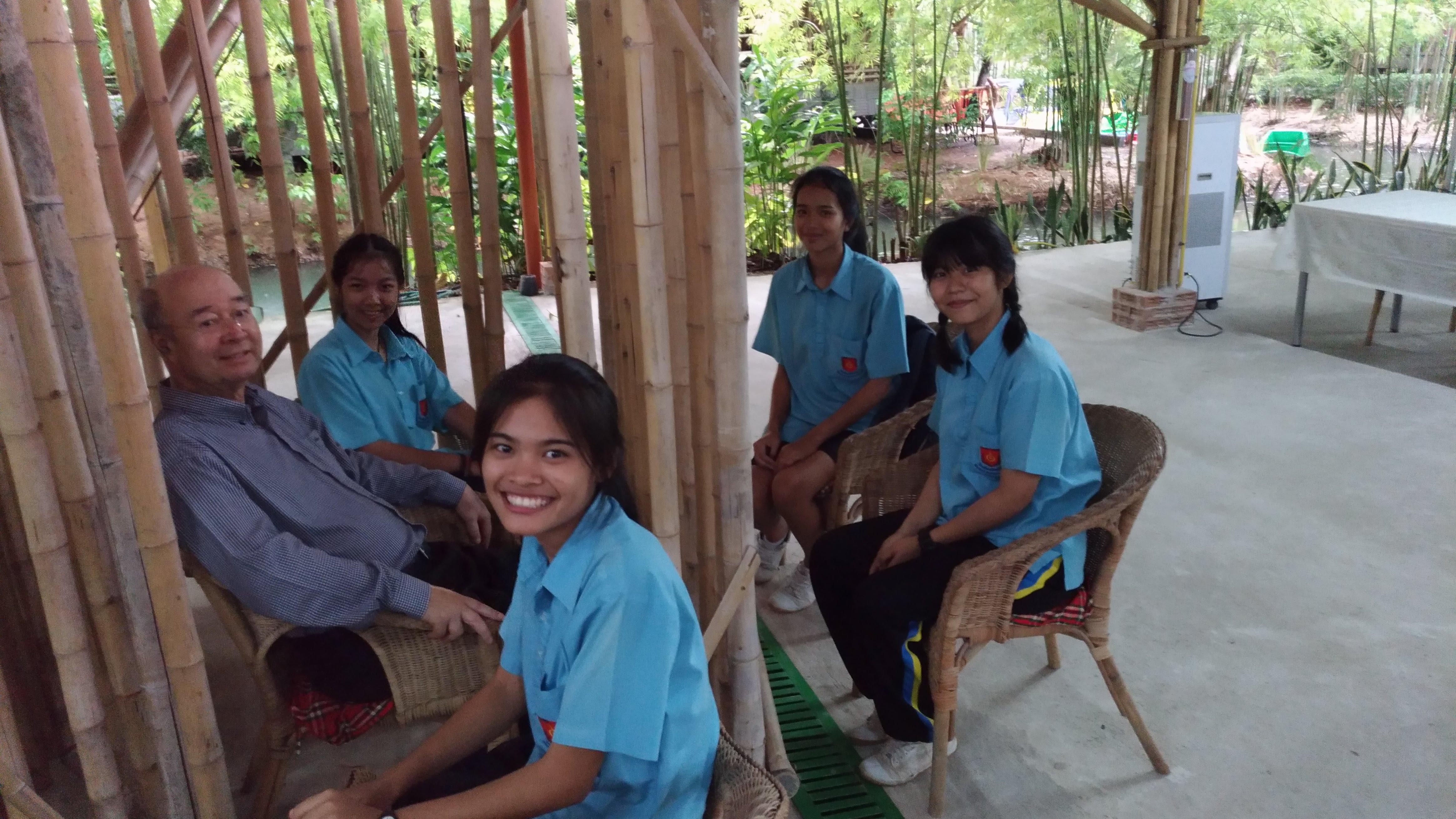
For now, however, it’s Mechai Pattana’s current students and graduates who are having the greatest impact.
Back in her village to help supervise the sex education workshops, Mod Noi explains her ideas for a range of small businesses, which would see funds flow back into the community and provide jobs. As well, she is providing much longed for inspiration and hope.
“Many villagers and youth come to see me now to discuss their ideas and ask advice, so this is great encouragement,” says Mod Noi. “And more and more people my own age are realising the importance of doing business, which would allow them the opportunity to stay here and not be forced to migrate to the city, which they currently have to do. So I feel I am doing something right”.
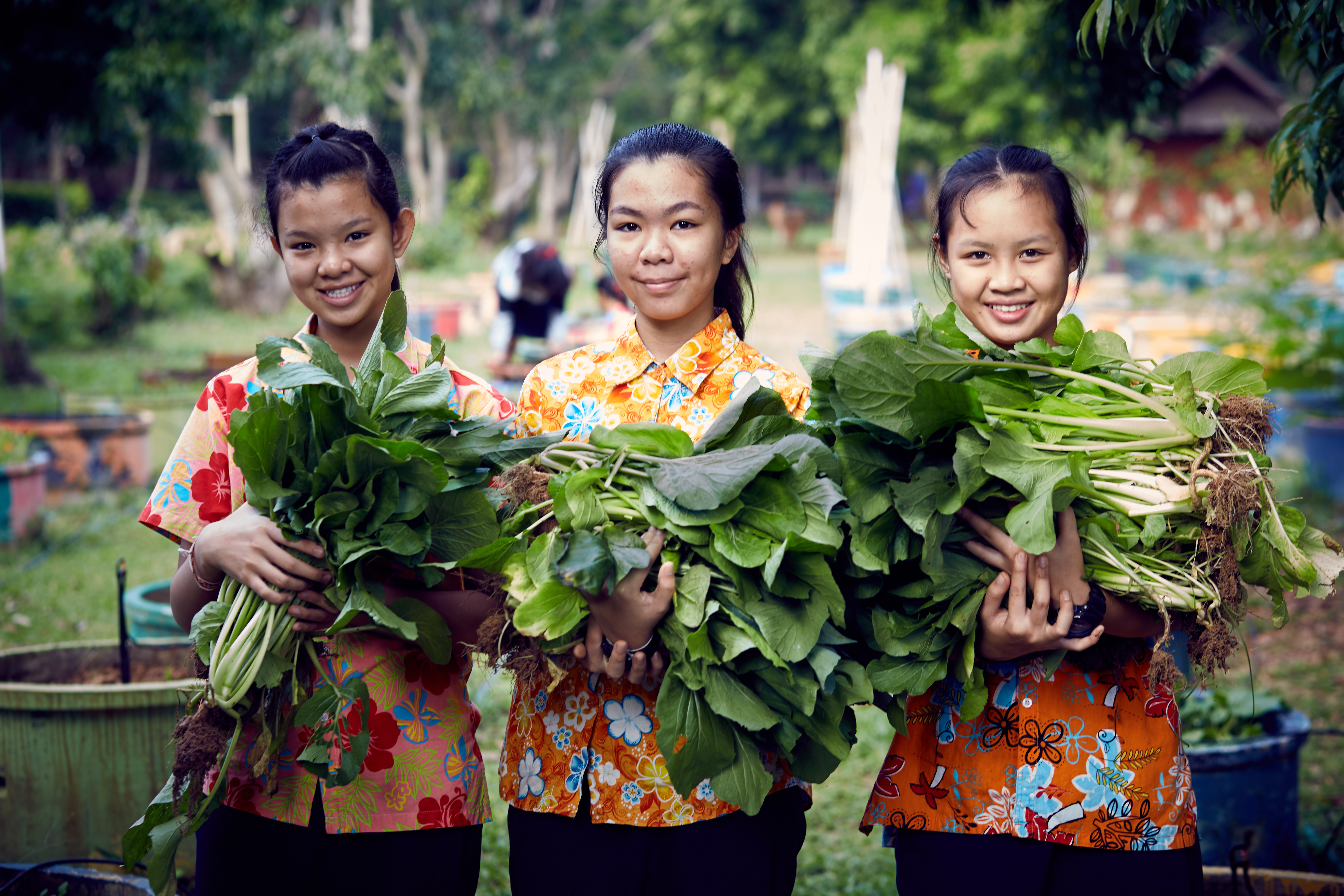
Image: Ruth Carr/UNFPA Thailand

